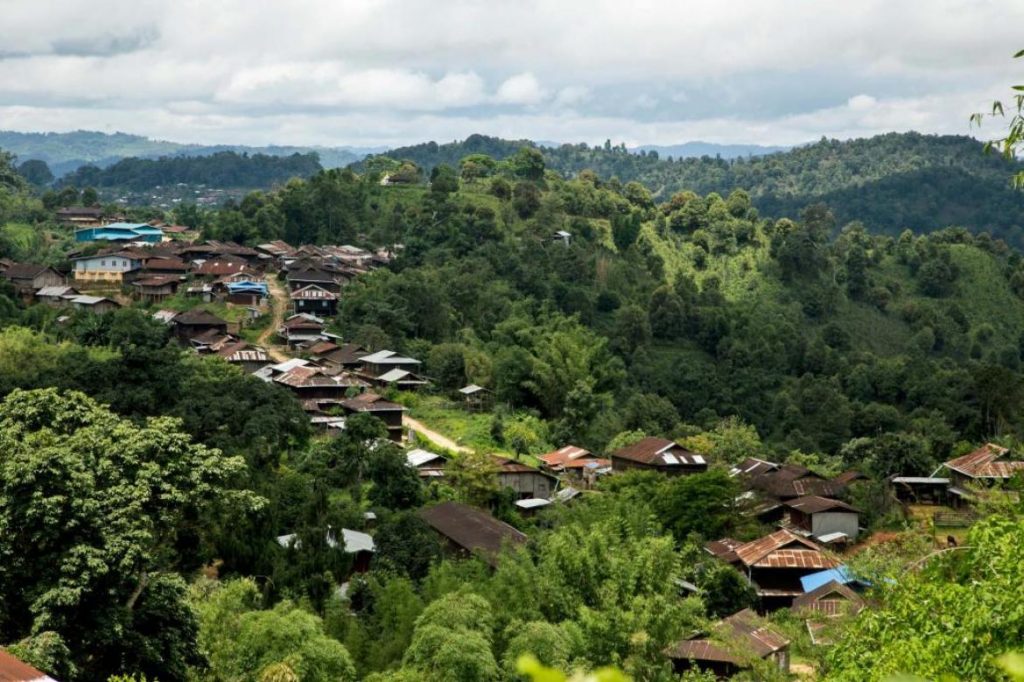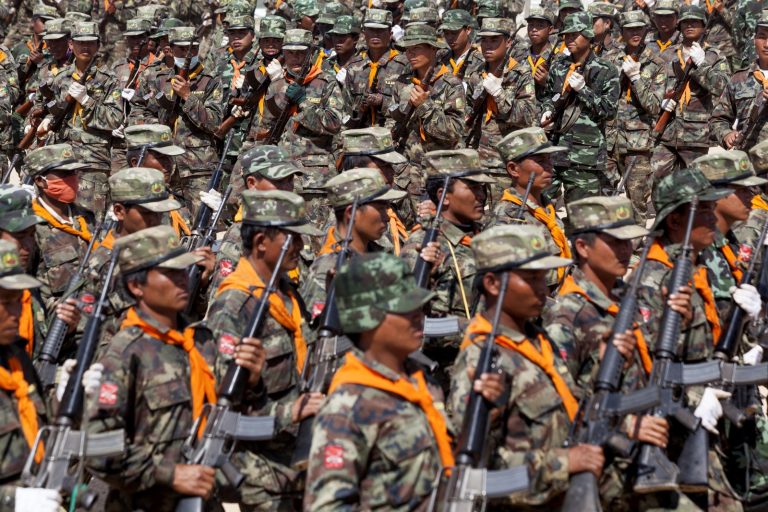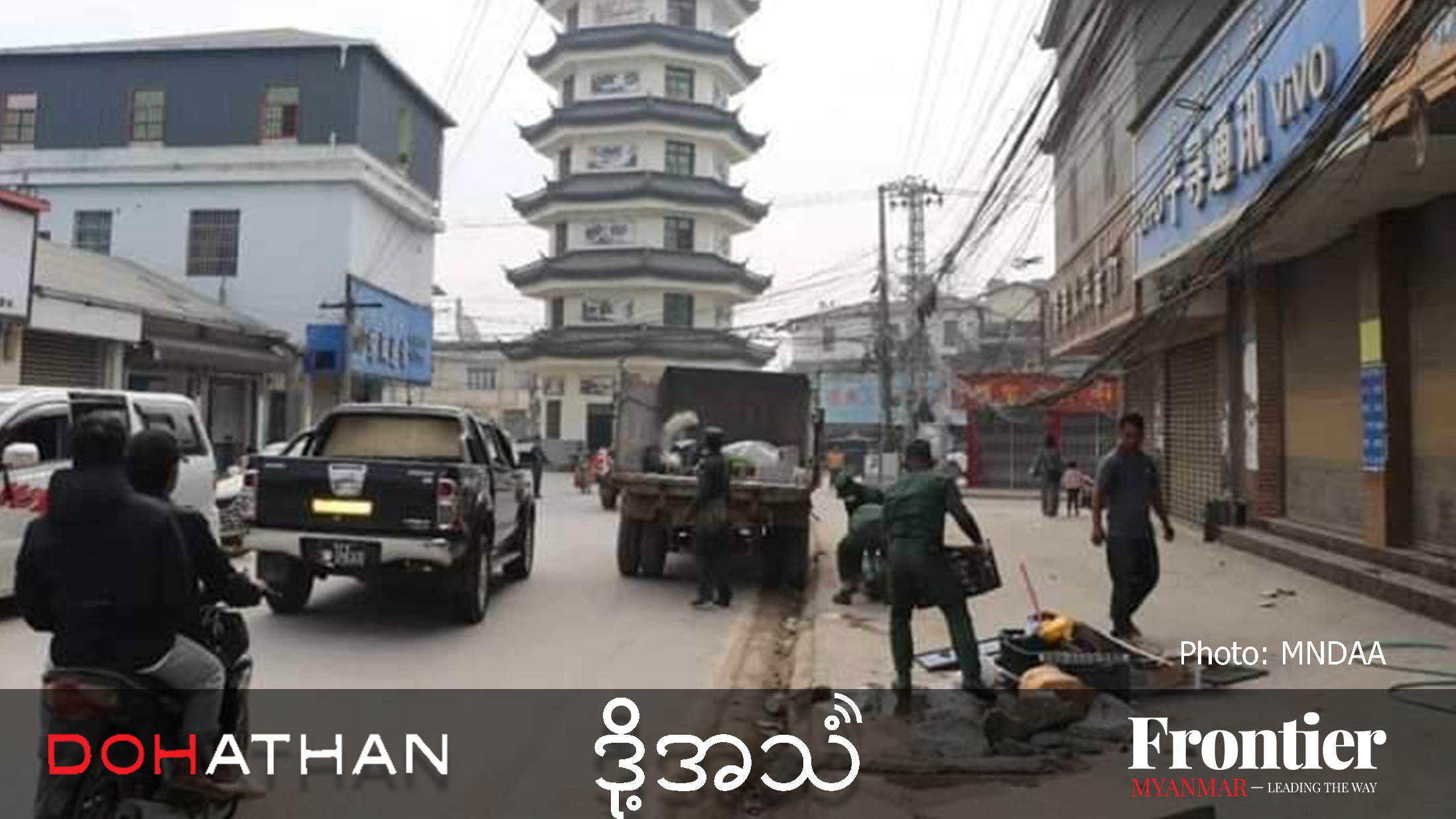By CLARE HAMMOND | FRONTIER
YANGON — At nightfall on October 1, a 34-year-old farmer named Sai Ai Htun was riding a motorbike to his hill farm in northern Shan State’s conflict-torn Kyaukme Township. Near the entrance to the farm, he saw a patrol of around 15 Tatmadaw soldiers.
Fearful of meeting them, he turned his motorbike around and rode away. The troops called out to him to stop and then shot after him. A bullet hit Ai Htun in the back and he died on the road.
At 7pm the commander of the Hsipaw-based Light Infantry Battalion 504, whose troops were responsible for the killing, telephoned the leaders of nearby Hong Hang village tract and Nawng Arng village, where Ai Htun lived. The commander said, “We have shot a villager by mistake. You can come and identify which village he is from”.
These details were recorded by the Shan Human Rights Foundation and published Tuesday. The Tatmadaw has not issued a statement about the incident and Frontier was unable to reach the military’s True News Information Team for comment.
Support more independent journalism like this. Sign up to be a Frontier member.
At around 7.30pm, the report continues, the chairman of Hong Hang village tract, Lung Kyaw Hla arrived at the scene of the shooting and identified the body, which was taken to Kyaukme hospital for a post mortem. Ai Htun’s mother and Lung Kyaw Hla reported the incident at Kyaukme Police Station at around 11pm the same evening, the SHRF said.
The following morning, military officers from LIB 501 and 504 accompanied by some 15 soldiers reportedly came in three cars to the house of the Nawng Arng village headman to discuss the case and they summoned Ai Htun’s mother and wife to join them.
The report says the soldiers warned his mother that if she filed charges, it would be time consuming both for the family and for the accused and that it would not bring her son back.
Sai Hor Hseng of SHRH told Frontier on Tuesday that he believed the family was under pressure to accept a settlement instead of pressing charges.
However, he said it is rare for Tatmadaw soldiers to even admit to killing civilians.
“I think this time it may be because of the international pressure on the military. They may want to show they are not hiding their crimes,” he said.
Once the village head and Ai Htun’s mother agreed not to sue the battalion, the military officers provided his wife with a K1 million cash payment and an assortment of foodstuffs: one sack of rice worth K35,000, three bottles of cooking oil, one kilogram of sugar and a packet of coffee. Soldiers stressed that this was not compensation, but was intended to “help” the family.
Though Ai Htun’s mother and the village head signed their agreement on October 2, another military officer returned the following day with another five soldiers to ensure the decision was final and that the family would not press charges, the report said.
Parliamentarian Sai Tun Aung, who represents Kyaukme for the Shan Nationalities League for Democracy in the Pyithu Hluttaw confirmed the details of the incident and the compensation to Frontier on Wednesday.
He said that from a human rights perspective it was inappropriate to settle the arbitrary killing of a civilian in this way. “As the family did not have knowledge about how to proceed in the right way, they accepted suggestions made by the battalion,” he said.
The case highlights the vulnerability of communities and the lack of recourse to justice in conflict areas, where Hor Hseng said this type of incident remains common.
If soldiers order a villager to stop and the villager refuses, he said, the soldiers suspect them of links to ethnic armed groups. But villagers are afraid to stop in case they are detained and interrogated about the movements of armed groups operating in the area.
Until the military is brought under civilian control, Hor Hseng said, there is nothing to prevent this kind of incident from happening again in future. Unless this happens, he said, “this sort of case will never end”.
— Additional reporting by Su Myat Mon







